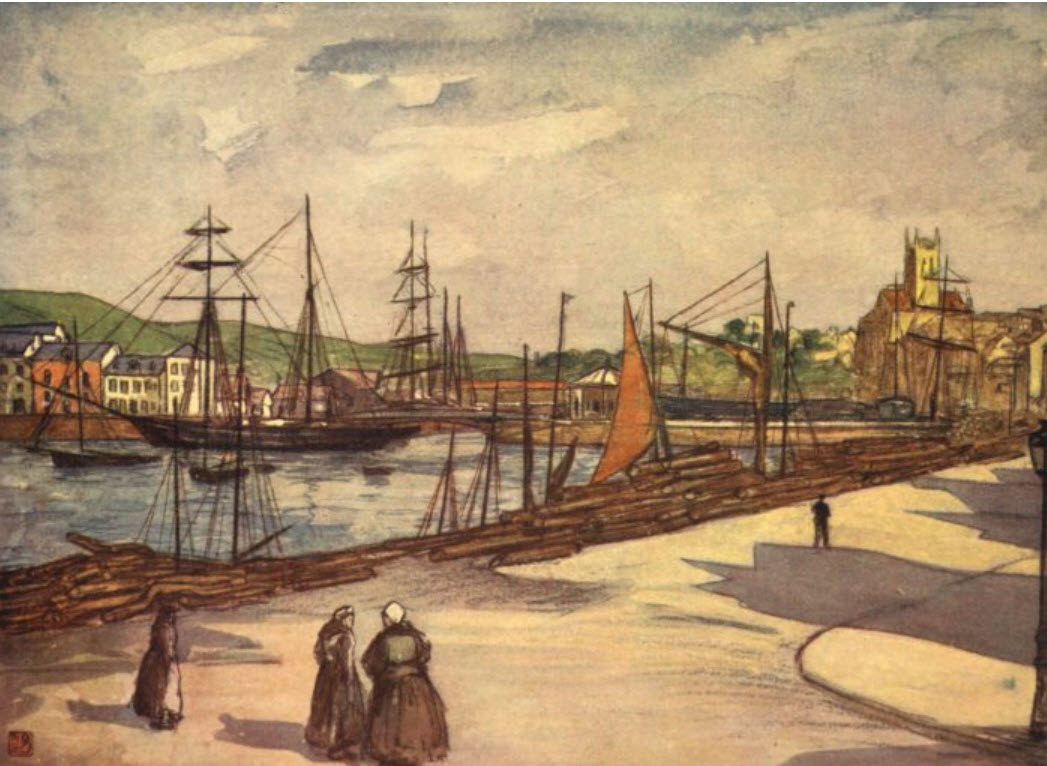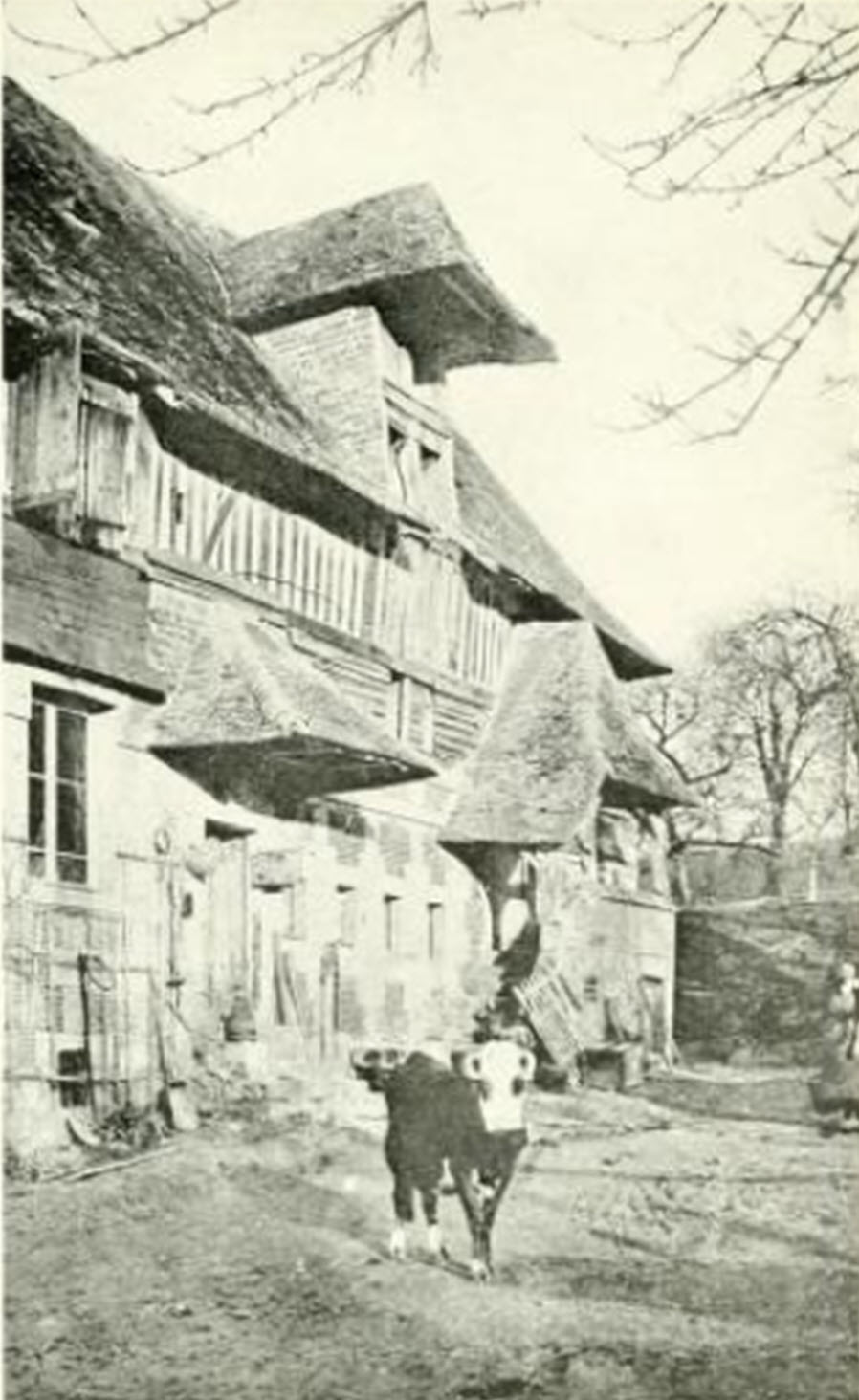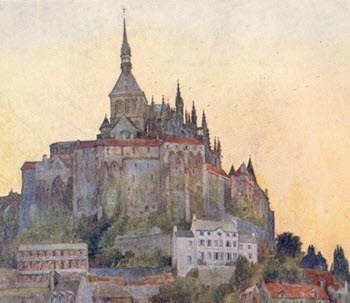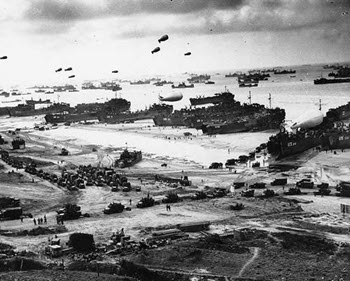
Normandy Has Played a Key Role in the History of the World
History of Normandy
NORMANDY is the name of a region of France, bordering on the English Channel.
The recorded history of Normandy (Normandie, in French) begins when the Romans conquered the area in the time of Julius Caesar. It remained an Imperial possession throughout the long life of the Roman Empire, but was lost in the final years of the Empire when the area was invaded by the Franks, an invading barbarian tribe.
The Franks and united Normandy to Neustria. In the time of Charles the Simple, in 911, it became known as Normandy.
The region came to be known as Normandy on account of the fact that it was overrun by a later wave of barbarian invasions, this time by the North Men or Vikings.
Northmen, or Norsemen, was a name applied to the inhabitants of the coast regions of Scandinavia and north Germany, who were noted in the Middle Ages for their skill in navigating the sea. Their object in sailing was principally to secure profit from ravaging the coasts of other lands and to capture the vessels of other nations while at sea, for which purpose they fitted out many substantial fleets and manned them with the most efficient of their young men. They became known as the Sea-kings, or Vikings, were warlike, and carried their marauding expeditions to regions far remote.

Historical Photo of an Old Norman Farmhouse
According to the inheritance laws of Scandinavian countries, the fortunes of noblemen passed to the elder sons, hence the younger sons depended upon their success in resorting to a military life, and these continually recruited the Vikings, who were otherwise of the lower rank. These peoples worshiped the gods Thor and Odin and had no regard for the institutions of the people advanced in civilization. They accordingly found it congenial to prey upon monasteries, cathedrals, mosques, capitols, and all the institutions of civilized life.
The North Men soon found that the more civilized nations of Europe were too weak militarily to repel them, and so the Vikings began to seize and hold territory rather than conducting hit and run attacks as previously.
After the 9th century the Northmen began to dream of conquest, for which purpose they visited the Hebrides and the coasts of France and Spain. Under their reader Rollo, the Vikings seized Normandy.
The French were too weak to expel them and bought peace. The Duke of Rollo secured from the French king, Charles the Simple, a cession of the region known as Normandy in 912, which was afterward organized into a powerful state and was the seat of influence by the Normans, who descended from the Northmen. The North Men's hold on Normandy was recognized and given official sanction. Their leader was made a Duke of France and nominally swore allegiance to the French King. Thus the country of Normandy, only 80 kilometers from Paris, passed into foreign hands. However later the Normans adopted the language and religion of the French.
Within this territory the Normans organized a powerful state. In 1066 the Normans conquered England and their leader assumed the title of William the Conqueror. From that date Normandy and England were ruled as one country, and they continued a formal union until 1204, when the French king Philip Augustus took possession of the province and made it a part of France.
The English came into possession of it a second time during the 100 Years War between France and England, after the Battle of Agincourt, in 1415, but it was reunited with France by Charles VIII. in 1449. Formerly the Channel Islands were a part of Normandy, but they have remained an English possession. During the war, Joan of Arc, the peasant who rose to command the French armies against the British, was captured by the British and the Burgundians, and burned alive on charges of sorcery at the city of Rouen.
The history of Normandy then melded with that of the modern French state. This beautiful little region of France has been a strategic pivot point for European military strategy. From here the Normans invaded England in 1066, and later France and England contested the region during the Hundred Years War. During the Napoleonic Wars, Napoleon built an invasion fleet for his abortive invasion of England.
During World War 2, Normandy was occupied by Nazi Germany and the Nazis planned to use the Normandy ports to invade England, but their defeat in the Battle of Britain denied them the needed air superiority. It was instead the Allies who crossed the Channel on D-Day and landed in Normandy to liberate Europe. Normandy is remembered for the bloody fighting that ensued during the Normandy campaign.
Normandy remained in German hands until the D Day landings, when Allied forces crossed over from Britain in the largest sea borne invasion in history. Intense fighting on the beaches and around the strategic city of Rouen resulted in the breakup of the German defence and shortly afterward the allied armies retook Paris, leading to the restoration of the French government.
Today Normandy is an important tourist region, with many people visiting the D Day beaches as well as the spectacular medieval monastery-fortress of Mon St Michel.
This site is dedicated to the History and Culture of Beautiful Normandy France.



